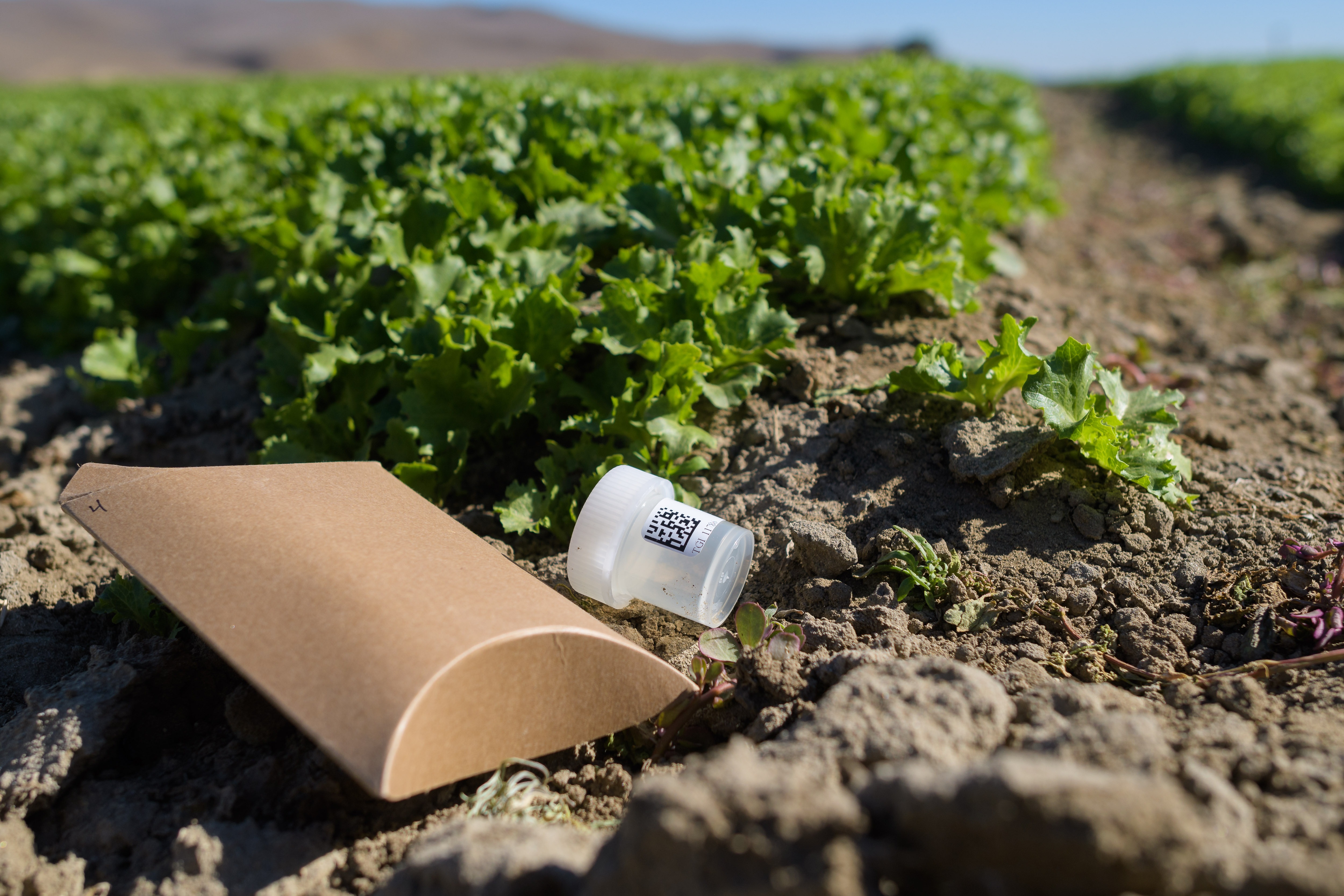Trace Genomics, a San Francisco Bay area startup developing revolutionary, AI-enabled diagnostic tools for farmers to increase yields and reduce costs, has closed a $13 million Series A round.
Trace Genomics has built the first scalable soil microbiome test to help farmers predict soil disease, soil health, and crop quality, using high-throughput DNA sequencing and machine learning.
Leading East Coast investor Stage 1 Ventures led the round. Additional investors participating in the round include Viking Global Investors, online venture capital platform AgFunder, and others.
Billions of microorganisms populate every tablespoon of soil, interacting with the roots of plants to play a key role in how they uptake nutrients and grow. But microbes can also play a role in what causes plant disease in crops too.
With a growing, proprietary knowledge base, Trace Genomics can identify previously unknowable microbial species occurring in agricultural soils, and provide farmers with information about which microbes could be impacting production. Farmers can use this information to make decisions about which seeds to use, what rotations to deploy and which biological agents to apply.
Overall the startup aims to help growers increase yields, achieve more efficient nutrient use, reduce input costs, reduce the disease risks facing their crops.
“We think Trace Genomics’ category-defining technology has the potential to materially change our approach to food production,” said Michael Dean, Chief Investment Officer at AgFunder, the online venture capital platform. “As their data library grows, they’ll identify microbial relationships that can threaten or sustain crops, enabling appropriate responses by growers and their advisors.”
[youtube https://www.youtube.com/watch?v=6RQTowgOcro]
Sustainability Credentials
Trace Genomics’ tests can also effectively gauge soil health, carbon sequestration, and sustainable agricultural production.
“Trace Genomics has the opportunity to transform how we measure sustainable and regenerative farm management practices,” said Joseph Pianelli, Stage 1 Ventures Operating Partner in a statement.
“It’s time we started paying attention to the dirt below our feet,” added Veery Maxwell, Director at Energy Innovation. “Trace’s technology could play a significant role in helping food companies meet their stated climate goals, providing a way to quantify these efforts for the first time. The soil microbiome also plays a significant role in providing nutrients to the plant through its roots, and that influences the nutrition content of the food we produce and eat.”
After just one year with commercially-available diagnostic tools, Trace Genomics is helping growers of over 70 high-value fruits and vegetables make crucial input and planting decisions, and have tested soil samples representing more than 150,000 acres.
Carl Casale, a Trace Genomics customer and former CEO of food and ingredients company CHS said: “Precision agriculture lacks the ‘so what’. With the Trace report, we were able to see very clearly what was causing loss of productivity on our fields and what we needed to do about it. We saved over $100/acre by avoiding a fungicide we didn’t need and focusing on specific approaches to improve our soil health. We saw visible improvements to our yields the following season.”
From Fresh Fruit to Grains
Trace Genomics launched its first offering, a disease risk panel of 10 disease indicators for one crop (strawberries) in Summer 2016. Since then, its offerings now include dozens of soil health indicators and more than 100 disease risk indicators for over 70 crops. It has helped growers of high-value fruits and vegetables make crucial input and planting decisions.
The company now has the capacity to process more than thousand soil samples a week. It uses the same process to analyze soils regardless of the crop or region, enabling learnings that can be applied broadly or specifically.
Next year, with its ability to process more than thousand soil samples a week across geographies and soil types, Trace Genomics will expand to corn and soybean, with the potential to impact over 170 million acres in the US alone. Trace Genomics can identify the likelihood of crop diseases such as soybean sudden death syndrome and can guide growers to decisions that lead to greater nutrient efficiency. Both of these benefits can increase overall profit for the farmer, a growing priority in recent years with deflated food commodity prices.
“The founding team has demonstrated a passion for microbiome science and a determination to deliver value to the market.”
Trace Genomics was founded by Dr. Diane Wu and Dr. Poornima Parameswaran, who met as graduate students in Nobel Laureate Andrew Fire’s lab at Stanford University. Their complementary backgrounds span computational biology, genomics, data science, immunology, microbiology, and infectious diseases.
“People have been looking for ways to tackle global food security – and it’s right there, under their feet,” said Poornima Parameswaran, PhD, Trace Genomics’ President and Co-founder. “Measuring the soil biome is the critical first step in optimizing the natural functions present in our soils today, so we can be more precise and economical in choosing seed, nutrients and other inputs. Our ability to sustainably utilize our soils today will put us on track to meeting our growing food demands sustainably.”
This fundraising round brings Trace Genomics’ total capital raised to more than $19 million. Previous investors include Fall Line Capital and Refactor Capital. Trace Genomics is also an AgFunder Innovation Award winner.





